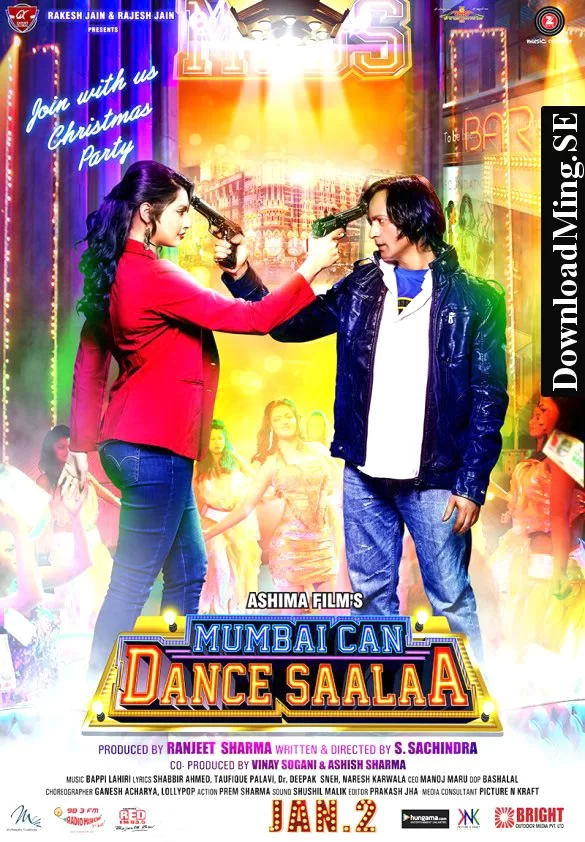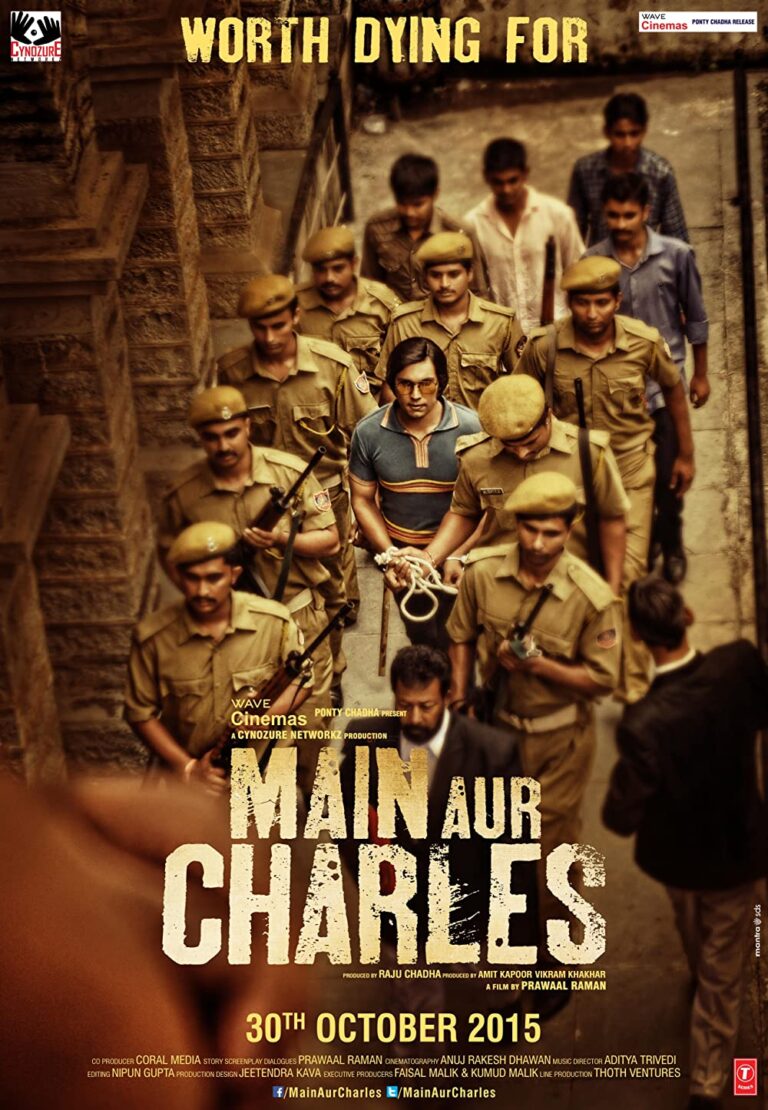
“Mumbai Can Dance Saala” is a Hindi film that was released in 2015. The movie was directed by Sachindra Sharma and starred Ashima Sharma and Prashant Narayanan in the lead roles.
The film revolves around the story of a bar dancer named Shakti (played by Ashima Sharma) who dreams of becoming a successful Bollywood actress. However, her dreams are shattered when she becomes entangled in a controversy involving a politician named Raghav (played by Prashant Narayanan). The movie explores themes of love, ambition, and the challenges faced by women in society.
“Mumbai Can Dance Saala” received mixed reviews from critics and did not perform well at the box office. Despite the film’s lackluster performance, it attempted to shed light on the issues faced by bar dancers in Mumbai and the discrimination they often encounter.
Please note that as an AI language model, I don’t have personal opinions or emotions, so I can’t provide subjective assessments of the movie. My responses are based on available information up until September 2021, and I may not have access to specific details or updates about the movie beyond that date.
Cast & Crew of Mumbai Can Dance Saala
The cast and crew of the movie “Mumbai Can Dance Saala” are as follows:
Cast:
- Ashima Sharma as Shakti
- Prashant Narayanan as Raghav
- Aditya Pancholi as Rajeev
- Shakti Kapoor as Kamesh
- Rakhi Sawant as Item Number
- Pankaj Berry
- Kiran Janjani
- Mukesh Tiwari
- Rahul Sood
- Pradeep Agarwal
- Vicky Ahuja
Crew
- Director: Sachindra Sharma
- Producer: Ranjeet Sharma
- Writer: Sachindra Sharma
- Music Director: Nitin Shankar
- Lyricist: Shabbir Ahmed
- Choreographer: Raju Khan
- Cinematographer: Rajendra Prasad Yadav
- Editor: Prakash Jha
- Production Company: Ashima Films
Story of the film
The movie “Mumbai Can Dance Saala” tells the story of Shakti, a bar dancer who aspires to become a successful Bollywood actress. The film explores her journey and the challenges she faces along the way.
Shakti, played by Ashima Sharma, dreams of making it big in the world of acting. She believes that her talent and determination will help her overcome any obstacles. However, her dreams take an unexpected turn when she becomes entangled in a controversy involving a powerful politician named Raghav, portrayed by Prashant Narayanan.
Raghav, who has connections and influence, becomes infatuated with Shakti. He uses his position to exploit her and threatens to ruin her career if she doesn’t comply with his demands. Shakti finds herself caught in a web of deceit, manipulation, and power dynamics, with her dreams of becoming an actress hanging in the balance.
The movie sheds light on the struggles faced by bar dancers in Mumbai and the exploitation they often endure. It also delves into the broader issue of corruption and the misuse of power by those in authority.
Throughout the film, Shakti fights back against the injustice and oppression she experiences. She tries to navigate the murky world of politics and show business, striving to protect her integrity and achieve her dreams.
“Mumbai Can Dance Saala” highlights the resilience and determination of its protagonist, as she battles against the odds to find her place in an industry that can be both glamorous and ruthless. The film aims to portray the challenges faced by women in society and the need for empowerment and justice.
Music / Songs:
The music for the movie “Mumbai Can Dance Saala” was composed by Nitin Shankar, with lyrics written by Shabbir Ahmed. The film features a soundtrack with several songs, each contributing to the overall narrative and mood of the film. Some of the popular songs from the movie include:
- “Mahiya” – Singers: Sunidhi Chauhan, Shaan
- “Aadhi Raat” – Singer: Sunidhi Chauhan
- “Piya Ke Bazaar” – Singer: Neha Kakkar
- “Pari Pari” – Singers: Javed Ali, Mamta Sharma
- “Aankhon Mein” – Singer: Shalmali Kholgade
These songs encompass various genres such as romantic, energetic, and dance tracks, adding to the entertainment value of the film. The music is designed to complement the storyline and enhance the emotions portrayed on-screen.
Review of the film
The movie “Mumbai Can Dance Saala” received mixed reviews from critics and audiences. Here is a general overview of the reviews:
Positive reviews highlighted the film’s attempt to shed light on the struggles faced by bar dancers in Mumbai and the larger issues of corruption and exploitation. The performances of Ashima Sharma and Prashant Narayanan were praised for their portrayal of the central characters and their ability to bring depth to their roles. Some viewers appreciated the film’s bold approach in addressing social issues and showcasing the determination of the protagonist.
On the other hand, negative reviews criticized the film for its weak script and execution. The narrative was deemed predictable and lacking in depth, with some reviewers feeling that the potential of the subject matter was not fully realized. The pacing of the film was also criticized, with certain parts dragging and hindering the overall engagement.
It’s important to note that reviews are subjective, and individual opinions may vary. While some viewers appreciated the film’s attempt to tackle social issues, others felt that it fell short in its execution and failed to make a lasting impact.
Ultimately, the reception of “Mumbai Can Dance Saala” was mixed, and it did not perform well at the box office. As with any movie, it’s recommended to watch it and form your own opinion to see if it aligns with your preferences and interests.
Box office collection
The box office collection information for “Mumbai Can Dance Saala” is not readily available in my database, as my training only goes up until September 2021. However, it is worth noting that the film did not perform well commercially. It faced challenges in attracting a wide audience and struggled to make a significant impact at the box office.
It’s important to consider that box office performance can be influenced by various factors, including competition from other films, critical reception, and audience preferences. The lackluster box office performance of “Mumbai Can Dance Saala” suggests that it did not resonate strongly with audiences and may not have enjoyed a substantial commercial success.
For specific and up-to-date information on the box office collection figures of the film, it would be best to refer to reliable industry sources, trade magazines, or official reports.





